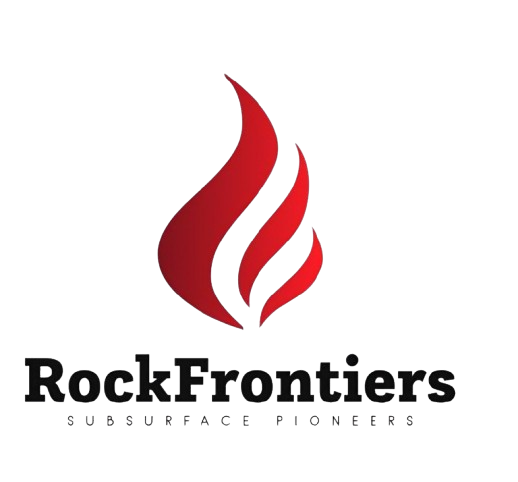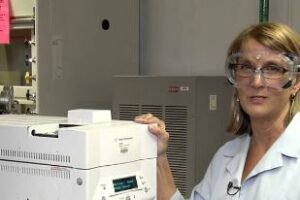🕵️ Forensic Accounting and Auditing Training Course
📘 Course Description This comprehensive course provides participants with in-depth knowledge and hands-on skills in forensic accounting, fraud detection, and investigative auditing techniques. It covers the principles, tools, and techniques of forensic accounting, including legal frameworks, data analysis, evidence gathering, …
Overview
📘 Course Description
This comprehensive course provides participants with in-depth knowledge and hands-on skills in forensic accounting, fraud detection, and investigative auditing techniques. It covers the principles, tools, and techniques of forensic accounting, including legal frameworks, data analysis, evidence gathering, interview methods, and report writing. The course integrates real-life case studies to enhance practical application and equips participants with the skills to detect, investigate, and prevent fraud in various financial environments.
🎯 Course Objectives
Participants will learn to:
-
Understand forensic accounting principles and audit procedures
-
Identify red flags and fraud schemes
-
Analyze financial statements for fraudulent manipulation
-
Conduct interviews and gather evidence legally and ethically
-
Prepare effective forensic audit reports
-
Use digital tools and data analytics in investigations
👥 Who Should Attend
-
Forensic Accountants and Auditors
-
Internal and External Auditors
-
Compliance Officers
-
Risk Managers
-
Legal Advisors and Law Enforcement
-
Corporate Investigators
-
Finance Managers
🧠 Training Methodology
-
Interactive lectures and expert facilitation
-
Case studies and group discussions
-
Hands-on exercises and simulations
-
Fraud investigation role-play
-
Templates and toolkits for forensic audit practices
📅 Detailed 5-Day Agenda with Time Breaks
📆 Day 1: Fundamentals of Forensic Accounting
| Time | Topic |
|---|---|
| 08:30–09:00 | Registration and Welcome |
| 09:00–10:30 | Introduction to Forensic Accounting & Auditing |
| 10:30–10:45 | ☕ Coffee Break |
| 10:45–12:15 | Legal & Regulatory Frameworks for Fraud & Corruption |
| 12:15–13:15 | 🍽️ Lunch |
| 13:15–14:45 | Types of Fraud: Financial, Occupational & Cyber |
| 14:45–15:00 | ☕ Coffee Break |
| 15:00–16:30 | Ethics, Governance, and Professional Conduct |
📆 Day 2: Detecting and Investigating Fraud
| Time | Topic |
|---|---|
| 08:30–10:00 | Fraud Red Flags and Symptoms in Financial Records |
| 10:00–10:15 | ☕ Coffee Break |
| 10:15–12:15 | Financial Statement Fraud Detection Techniques |
| 12:15–13:15 | 🍽️ Lunch |
| 13:15–14:45 | Data Analytics for Fraud Detection |
| 14:45–15:00 | ☕ Coffee Break |
| 15:00–16:30 | Benford’s Law, Ratio Analysis, and Red Flag Indexes |
📆 Day 3: Forensic Audit Procedures & Evidence Gathering
| Time | Topic |
|---|---|
| 08:30–10:00 | Planning a Forensic Audit: Scope, Risk & Strategy |
| 10:00–10:15 | ☕ Coffee Break |
| 10:15–12:15 | Collecting, Preserving, and Documenting Evidence |
| 12:15–13:15 | 🍽️ Lunch |
| 13:15–14:45 | Interview Techniques for Witnesses and Suspects |
| 14:45–15:00 | ☕ Coffee Break |
| 15:00–16:30 | Chain of Custody and Evidence Admissibility |
📆 Day 4: Digital Forensics and Cybercrime Investigation
| Time | Topic |
|---|---|
| 08:30–10:00 | Introduction to Digital Forensics |
| 10:00–10:15 | ☕ Coffee Break |
| 10:15–12:15 | Computer-Based Evidence Collection & E-Discovery |
| 12:15–13:15 | 🍽️ Lunch |
| 13:15–14:45 | Cyber Fraud Case Studies and Risk Controls |
| 14:45–15:00 | ☕ Coffee Break |
| 15:00–16:30 | Forensic Tools: ACL, IDEA, CaseWare, Excel Models |
📆 Day 5: Reporting, Litigation & Case Studies
| Time | Topic |
|---|---|
| 08:30–10:00 | Writing a Forensic Audit Report |
| 10:00–10:15 | ☕ Coffee Break |
| 10:15–12:15 | Presenting Evidence in Court and Legal Testimony |
| 12:15–13:15 | 🍽️ Lunch |
| 13:15–14:45 | Simulated Case Study: Fraud Investigation Exercise |
| 14:45–15:00 | ☕ Coffee Break |
| 15:00–16:30 | Final Review, Q&A, and Certificate Distribution |
📂 Materials Provided
-
Forensic Audit Toolkit (Templates, Checklists, Flowcharts)
-
Digital Forensics Software Demos
-
Sample Reports and Legal Documents
-
Real-World Case Study Compendium
-
Certificate of Completion
Target audiences
- Reservoir Engineers, Geologists
You May Like
Gas and oil laboratories in the petroleum industryCopy
Course Description This course provides a comprehensive overview of laboratory practices, techniques, and standards used in the petroleum industry. Participants will understand how laboratory results guide exploration, drilling, production, and refining decisions. The course explores lab procedures for PVT analysis, …
Advanced gas chromatography techniques and troubleshooting
📘 Course Description: This advanced-level course is designed for experienced chromatographers and laboratory professionals who wish to master the latest techniques, applications, and in-depth troubleshooting strategies in Gas Chromatography (GC). The program focuses on method enhancement, selectivity tuning, high-resolution separations, …
🧪 Gas Chromatography Analysis – Principles, Practice & Applications
📘 Course Description: This intensive course provides a comprehensive understanding of Gas Chromatography (GC) and its application in chemical, petrochemical, pharmaceutical, and environmental laboratories. Participants will learn the fundamentals of gas chromatographic theory, the hardware components, detector technologies, sample preparation, …
Gas and oil laboratories in the petroleum industry
Course Description This course provides a comprehensive overview of laboratory practices, techniques, and standards used in the petroleum industry. Participants will understand how laboratory results guide exploration, drilling, production, and refining decisions. The course explores lab procedures for PVT analysis, …
Advanced Specialist Petroleum GeoMechanics
📘 Course Description: This elite-level course is tailored for petroleum geomechanics specialists and senior subsurface professionals engaged in complex field development projects. It provides a deep technical dive into stress modeling, anisotropic rock behavior, coupled geomechanical-reservoir simulation, fault/fracture mechanics, and …





